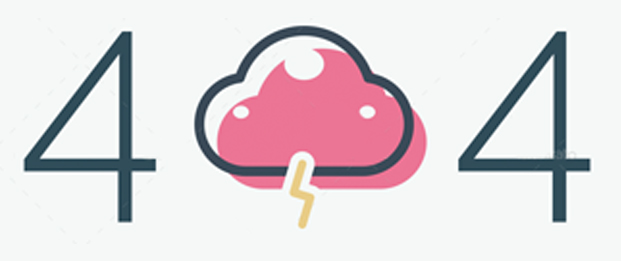Blog Post
Your Website Will Break…At Some Point

Whether you have a business that sells a product, a company that sells a service, or you provide valuable information to readers, you need a website. It is how the world operates, and any business that doesn’t keep up with this trend will stagnate and likely fail. Now, while most organizations and individuals are adjusting their advertising, marketing, and sales to this demand, it unfortunately requires more than a once-off website set-up. Without regular maintenance, every website will break.
What Will Cause A Website To Break?
1. Expired Domain:
Keep in mind that not all registrars email users when their domain is expiring. This doesn’t make a lot of business sense but it’s just the way it is. So if your domain expires before you remember to renew it, it goes back into the pool of available domains. Someone else can easily purchase it. And then, poof. All your hard work disappears and a new website pops up. Customers will make the unfortunate assumption that the original business went under. And then, poof. The customers begin to disappear. This is the worst case scenario of course, but it is a reality.
2. Plugin Problems:
Be wary of the plugins you use. Some plugins take up too many resources, which will cause shared servers to shut down your site until you deactivate them. Sometimes you just have too many plugins. Some plugins are bad or incompatible. The best course of action is to add one at a time so you can see how the site reacts and easily identify the bad apple. Keep in mind that some plugins work just fine on their own but don’t work well with others.
3. Hackers:
Hacking is generally portrayed as an attempt to steal client or proprietary information, or it might be to maliciously alter information on a website. And this is a danger. But what can also happen is hacking for the sake of something slightly more innocent: stealing bandwidth. Whatever the purpose of the hack, it’s most often due to a security hole that a nefarious bot has found on an outdated or poorly coded website.
4. Crawlers:
Most websites will only crawl an average site about once a day—just to stay up to date. Sometimes, however, random websites will send hundreds or even thousands of bots to crawl a site at once, which can cause websites to slow and even crash. This is pretty rare, but it’s not unheard of. Keep an eye out for this, identify the sender, request to be put on a do not crawl list, and ask your host to block them.
5. Server Sharing:
Be wary of sharing a server. You can do absolutely nothing wrong and you’ll wake up one morning to find your website down. This is simply because you are sharing resources with another entity that is taking far more than their fair share. Alternatively, be aware if your site requires more resources than a shared server or your hosting plan can provide. Not only will it negatively effect the other sites that share the server with you, but your site just won’t function properly. This might be caused by a lot of plugins, a large amount of data, or heavy traffic. And be aware that, generally speaking, the unlimited hosting plans almost always do have a limit—it’s in the fine print.
6. Hotlinking:
Although it may feel like a malicious attack, hotlinking rarely is. Most of the time, it’s just a mistake. Let’s say a high-traffic blog or news site grabs an image off of your website and puts it on theirs, forgetting to first save it to their own host. Your site will likely crash because their traffic is being funneled into your server. The best way to avoid this is to not save your grab buttons to your server.
7. Traffic:
Traffic surges can bring your website down, too. Usually smaller websites don’t consider this when they have a giveaway. Everyone attempts to enter the contest simultaneously and the server can’t handle that. It could also occur from a post, picture, article or video that happens to go viral. As the boy scout motto states, “Always be prepared.”
8. Updates:
Yes, they’re annoying. Unfortunately, updates are absolutely necessary. Plugin, software and browser updates fix aging code and improve security. If you put these updates off for long enough, your website will just stop working.
9. User Error:
People break things. Even if you have a CMS, there is still the potential for untrained personnel to mess something up. You can limit this by limiting the number of admins you have for a website and making sure those administrators have proper training.
How Can You Avoid Website Crashes?
- Test your website and its performance on a regular basis. This means testing the software that powers the website, exploring potential security loop holes, and simulating high traffic.
- CDNs are a great option for breaking down traffic and avoiding crashes.
- Partner with the right host. Shared hosting won’t work if you need a lot of resources—invest in a dedicated hosting plan.
- Be prepared and know that crashes happen. Have a plan in place to deal with them when they do.
- Stay up to date with the latest developer and software news so you can foresee potential problems before they happen and know when updates are available.
Additional Considerations
All of this supervision and maintenance is a lot of work. Most businesses don’t have the time to monitor the health of their website on a regular enough basis. Thankfully, these little tune-ups can be easily outsourced to professionals with high levels of expertise. At Mpire Solutions, we provide a 24/7 pay-as-you-go option for businesses that need regular maintenance:
- Plugin, module and extension development
- Website bug fixes
- Software updates and patches
- Build-out of new features
- Code reviews
- Website optimization
- Research and product development
- Ongoing maintenance and upkeep
There is also the developer concierge option where we are available to clients around the clock in case of an emergency. And when there’s not an emergency, the paid-for hours can go to:
- Bug fixes, software updates and patches
- Monthly security audits and patches
- Routine updates
- New pages
- Core reviews
- Plug-in, module and extension development
- Website and loading speed optimization
- Build-out of features and functionality
To find out more about what we do and how we can serve you, contact us.




